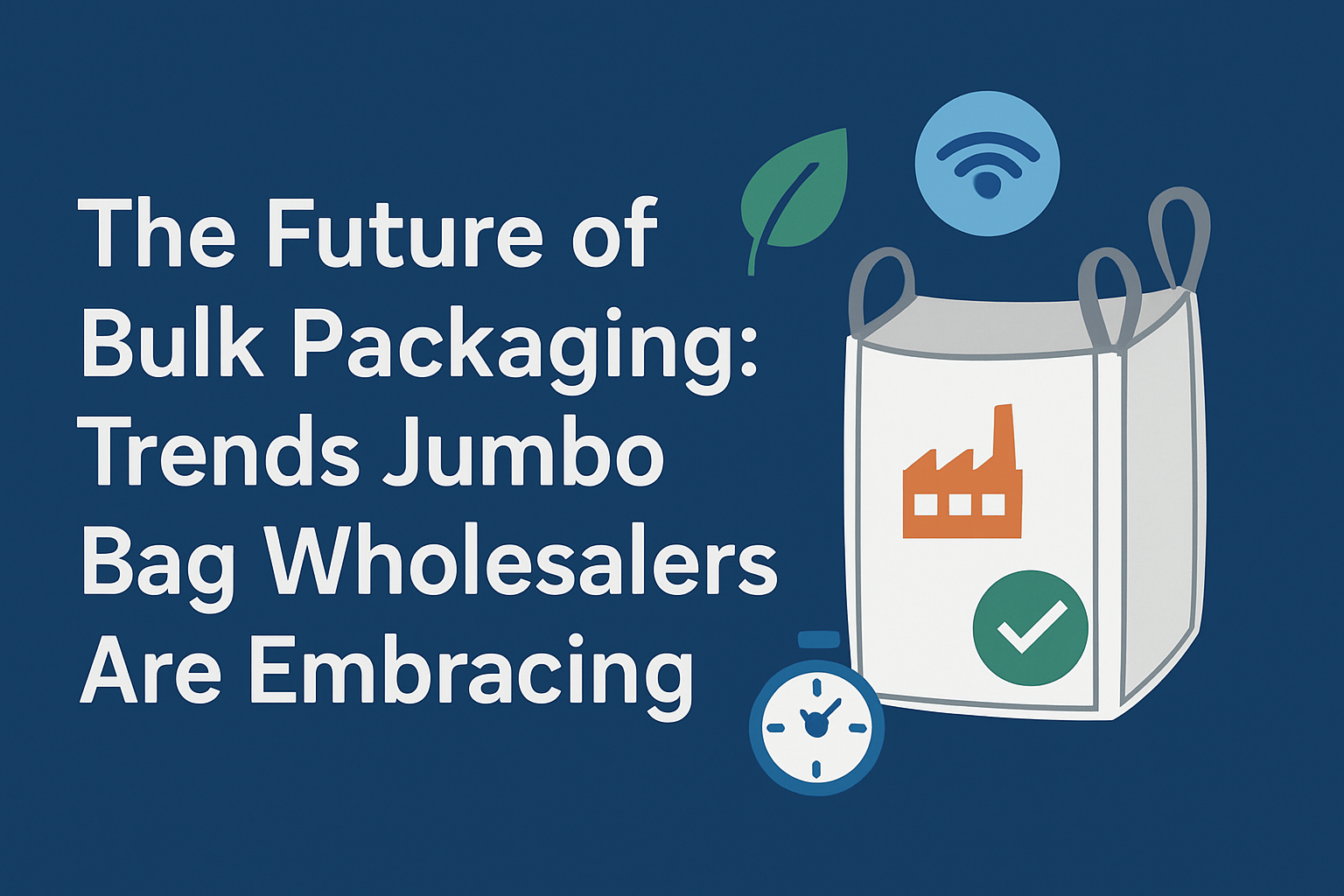If you’ve ever been inside a warehouse or at a farm during harvest season, you’ve probably seen them — those giant, sturdy bags holding everything from grain to cement. They’re called jumbo bags or FIBCs (Flexible Intermediate Bulk Containers), and they’ve been quietly doing the heavy lifting for decades.
But here’s the thing: jumbo bags aren’t what they used to be.
They’re getting smarter, greener, and a whole lot more tailored to different industries. And the wholesalers supplying them? They’re no longer just “bag sellers” — they’re problem-solvers, innovators, and supply chain partners.
Let’s walk through what’s changing — and why it matters if you buy or sell in bulk.
1. The Green Shift: Bags That Love the Planet
Businesses today can’t ignore sustainability. Customers care, regulations are tightening, and let’s be honest — wasting materials is bad for the bottom line.
That’s why wholesalers are moving towards:
- Recyclable and reusable polypropylene bags
- Durable designs that can handle multiple trips
- Cleaner, low-impact manufacturing methods
It’s not just a “feel-good” move. It’s about saving costs in the long run while meeting the growing demand for eco-friendly packaging.
2. Smart Bags Are Here (Yes, Really)
Imagine this: you scan a code on a jumbo bag and instantly see where it came from, what’s inside, when it was packed, and where it needs to go.
That’s happening.
Some wholesalers now offer bags with QR codes or RFID chips, turning a plain sack into a trackable, scannable, inventory-friendly tool.
It’s not just cool tech — it means fewer lost shipments, faster stock checks, and less paperwork.
3. Custom-Made for Every Industry
Gone are the days when one jumbo bag design had to “work for everyone.”
- Farmers are getting ventilated bags for onions and potatoes.
- Chemical companies are using anti-static Type C & D bags for safety.
- Food manufacturers are ordering dust-proof, food-grade FIBCs to keep things clean and compliant.
Wholesalers have realised: the closer the bag fits your needs, the better your operations run.
4. Stronger… Yet Lighter
The old logic was: strong = heavy.
Now, improved weaving techniques mean bags can be lighter without losing durability.
Why it matters:
- Lighter bags save on transport costs
- They’re easier (and safer) for workers to handle
- You can still load them to the max without worrying about rips or failures
5. Speed Matters
Let’s be real — no one wants to hear “your packaging will be ready in three weeks” when orders are waiting.
That’s why wholesalers are:
- Stocking popular sizes in local warehouses
- Offering on-demand delivery for regular clients
- Adopting “just-in-time” supply models so you don’t have to store more than you need
In the future, the fastest supplier will often be the winning supplier.
6. Safety & Compliance as Standard
In industries like food, pharmaceuticals, and chemicals, it’s not enough for a bag to just be strong — it has to meet safety regulations.
The best wholesalers are stepping up with:
- ISO or BRCGS-certified production
- UV protection for outdoor storage
- Clear labelling for load limits and handling
This isn’t just about ticking boxes. It’s about making sure what’s inside arrives safe, clean, and intact.
7. From Vendor to Partner
The biggest change? Wholesalers are no longer just selling bags.
They’re helping businesses:
- Reduce packaging costs
- Improve sustainability scores
- Design custom solutions for tricky products
They’ve become part of the team — just without a desk in your office.
Final Thought
The jumbo bag is still the same at first glance — big, tough, dependable. But beneath the surface, it’s evolving fast.
If you’re in a business that ships or stores in bulk, the wholesaler you choose today could be the difference between “getting by” and leading the pack in efficiency, sustainability, and safety.
And who knows? A few years from now, your jumbo bags might not just carry your product… they might carry your data, your brand message, and your environmental commitment too.

